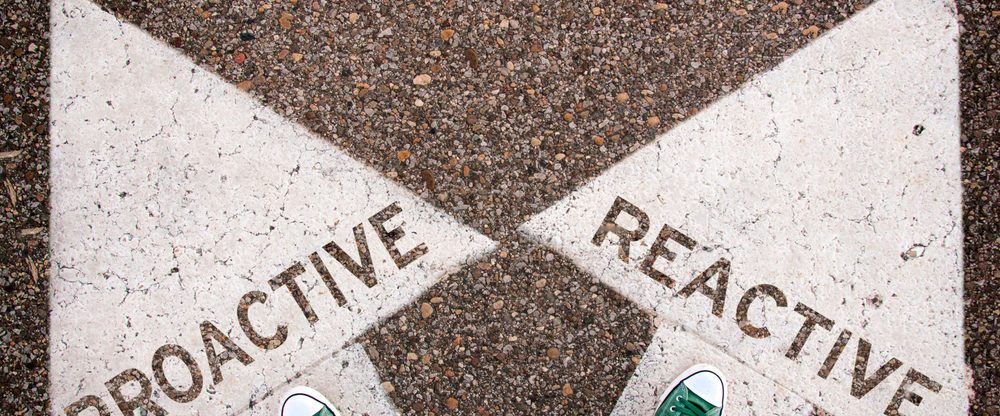
In Auschwitz, Victor Frankel, the author of Man’s Search for Meaning, hit upon a striking revelation about free will. While we can’t always choose our life’s circumstances, we are always left with an element of free will. Frankel said that a space exists between every stimulus and its reaction, and in that space lies one’s power to choose. How you choose determines the kind of life you create and the kind of person you become.
Proactive people recognize that no matter what circumstance they find themselves in, the power to choose always exits. Are you living a reactive or proactive life?
For us to know how to be proactive and not reactive, we first need to know what these terms mean. When we are reactive to problems, we react to previous events instead of attempting to anticipate future ones. When we decide to be proactive, we choose to act on a situation before this situation becomes a crisis. We must be “strategically proactive”.
Doing just for the sake of doing is NOT being proactive.
1. Think Long-Term
You must first understand that short-term thinking is antagonistic to the idea of proactive living because today’s short-term goals should, at one point, have already been yesterday’s long-term goals. Reactive living often fails to see the big picture, which is one of the core elements of proactive living.
2. Understand the Pareto Principle.
The Pareto Principle is all around us.
When it comes to our own productivity, the principle can be applied in that 80% of our results come from 20% of our efforts. The trick is to discover what that 20% is so we can apply our most effort to that 20% and eliminate as much of the 80% that does not produce the results we want. This is being Proactive.
You can apply the 80/20 rule to pretty much anything in your life. Use the principle to set effective goals or streamline your work schedule. And equally, you can apply it to your family life, fitness goals and more.
Finding Freedom and Being Proactive
When we’re told that the situations we find ourselves in and the emotions we experience are largely from our own doing, it can be hard to accept. It involves a huge paradigm shift, with us taking responsibility for our current circumstances.
The natural reaction is often to resist and to argue otherwise, until eventually the light bulb flicks on. The eureka moment occurs – the realization that we are in fact in control, if we want to be.
If we can choose to be reactive and be controlled by external factors, we can also choose not to be.
We don’t have to be influenced by unpredictable events or the negative emotions of others.
As holocaust survivor and psychologist Viktor Frankl stated in Man’s Search for Meaning:
“Everything can be taken from a man but one thing: the last of the human freedoms—to choose one’s attitude in any given set of circumstances, to choose one’s own way.”
~ VIKTOR FRANKL
For more healthy habit tips please bookmark our blog and consider coming back for a visit from time to time. And if you’re interested in our life coaching services, please click the link for more information.

